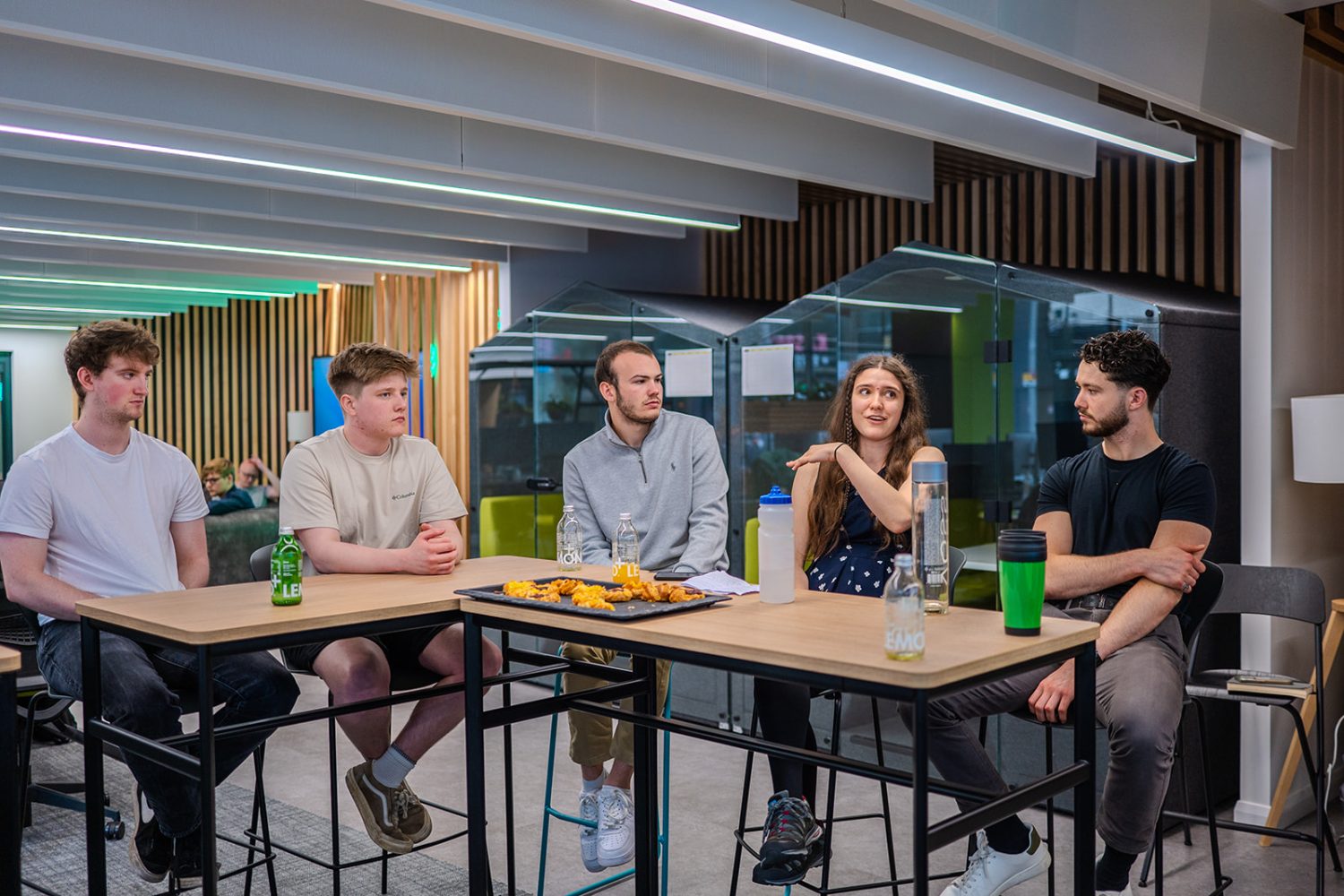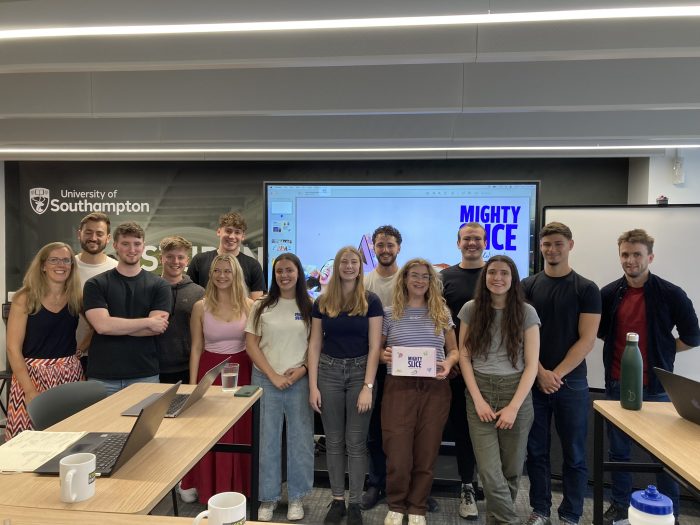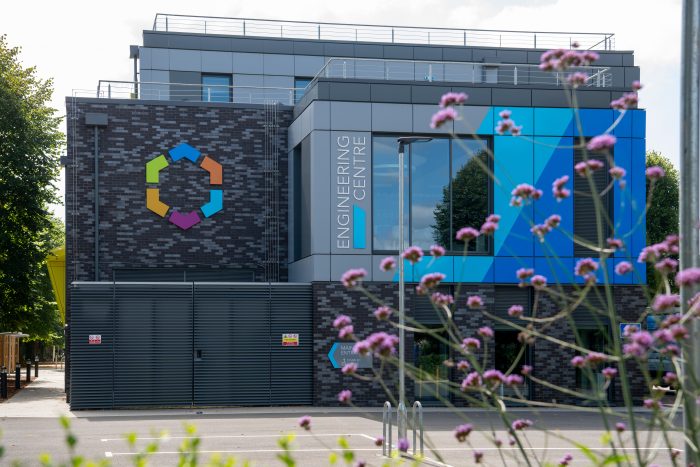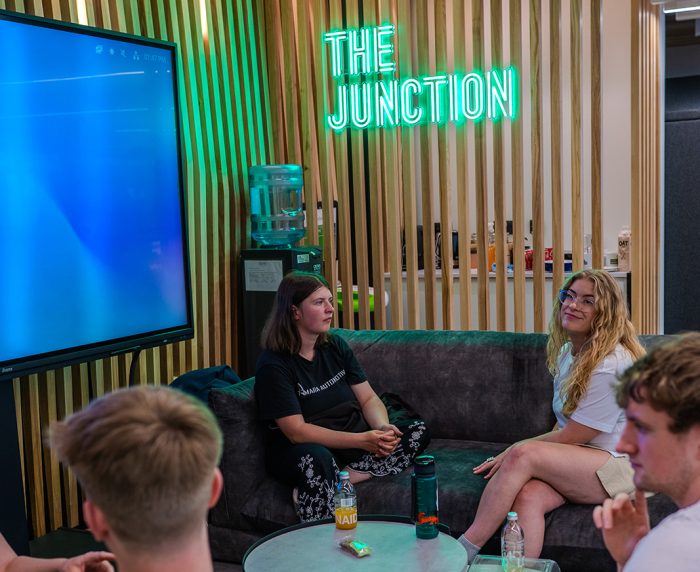SEARCH
Enter your search term below:
Close
Enter your search term below:

WORLD LEADING BUSINESS SUPPORT

In this new content series, we’ll be exploring the vibrant ecosystems of innovation and entrepreneurship across the SETsquared partner universities. We’ll delve into how each institution nurtures enterprise and how they’re helping to drive regional and national economic growth.
Kicking off with Southampton, we spoke to Diana Galpin, Director of Enterprise & Knowledge Exchange at the University of Southampton, to get an overview.
When people ask me what makes the University of Southampton stand out as a place for innovation and entrepreneurship, I always come back to one thing: we take it seriously, at every level, across every discipline, and with every stakeholder we work with. It’s not a side activity for us. Innovation and enterprise are embedded in our core mission alongside education and research. It’s part of what we call our own ‘triple helix’ approach – where knowledge exchange and enterprise sit equally beside teaching and research, and we’re proud to have recently been nominated for the Outstanding Entrepreneurial University category of the Times Higher Awards 2025.
Early pioneers
Southampton has a long tradition of entrepreneurial activity. Our Optoelectronics Research Centre is truly world-leading and has consistently been the source of spin-out success, including Lumenisity (sold to Microsoft), SPI Lasers (acquired by Trumpf), and others, such as Nexus and Fibercore. Photonics is a significant strength for us and a key contributor to job creation and regional growth.
We were a founding partner of SETsquared, which has gone on to have a significant economic impact, having helped its member companies raise over £5bn in investment. We pioneered what is now Innovate UK’s ICURe programme, which helps researchers working in UK universities to test whether their idea could become a spin-out company or licensing opportunity.
Beyond spin-outs to creating a truly collaborative ecosystem
To date, we have created 82 spin-out companies, injecting £928 million into the UK economy. But our ambition goes far beyond spin-outs alone. Today, we foster a dynamic and inclusive innovation ecosystem that empowers every type of innovator. Our vibrant licensing portfolio, coupled with tailored consultancy, facility access, and bespoke R&D services, drives real-world impact across industries.

At the core of this ecosystem is our Research & Innovation Services (RIS) team, our technology transfer office, a dedicated group of experts who connect cutting-edge research with commercial opportunity. RIS not only manages intellectual property but also accelerates its journey to market, supporting spin-outs, licensing agreements, and industry collaborations that turn ideas into tangible success.
Our figures speak for themselves, our annual income from IP is consistently over £1m and 2023/24 alone we had 125 IP disclosures and 1300 open licensing deals.
Previously, a significant missing piece of the puzzle was access to regional investment. To address this, as SETsquared universities, we’ve partnered with deep tech investor QantX to establish a £300m spin-out investment vehicle. It will offer early-stage patient capital, expertise, and support to university spin-outs and regional start-ups in areas global impact, including sustainability, clean energy, and transformative healthcare.
Our enterprise units, such as the Wolfson Unit and nC2, are designed to meet the needs of external businesses, providing them with access to cutting-edge university expertise that might otherwise be out of reach. We’ve developed a customer-centric approach that focuses on helping others succeed, rather than just developing technologies. The approach is working, as we’re ranked 2nd in the UK for consultancy income.
We’re home to two nationally significant innovation centres: the National Biofilms Innovation Centre and the Cornerstone Photonics Innovation Centre. The former is a truly collaborative effort, led by us and three other universities, which brings together industry and academia from across the UK to tackle global challenges such as food safety, water security and improving healthcare. These centres aren’t just facilities, they’re engines of innovation and collaboration.
We’re also breaking new ground in health innovation. We’ve recently launched a new School for Healthcare Enterprise and Innovation, which houses a Connected Healthcare Incubator Accelerator, to support health technology from ideation to scale. We’ll be launching an MSc in Medical Technology, Innovation, and Design, the first of its kind.
Our collaboration with the local NHS trust goes beyond clinical work to commercialisation. We collaborate in medical devices, secure data environments, and healthcare spin-outs. It’s a truly translational space where research becomes real-world impact.
Alongside our SETsquared partner universities and funded by Research England (CCF RED), we have recently developed the Deal Readiness Toolkit, an online tool designed to streamline the university research commercialisation process for all parties involved, including university researchers, technology transfer offices, investors, and lawyers.

In the lead-up to the creation of the Toolkit, the SETsquared partner universities came together for the first time to jointly present pipeline opportunities to investors. This is where the power of the partnership of six universities really comes into its own. These events showed the scale and quality of science and technology companies emerging from across the SETsquared University clusters, which is a match for any ecosystem. It reflects years of significant investment in translational research and the strong entrepreneurial support ecosystem across our partnership.
Looking forward
We’ve long had deep relationships with major players like BAE Systems, Rolls-Royce, Airbus, IBM, GSK, AstraZeneca, Johnson & Johnson and DSTL and are proud to engage with thousands of SMEs every year. These collaborations have evolved into trusted partnerships across large R&D programmes and innovation centres. We have a culture of continuous improvement, and we’re actively working to make it easier for businesses to access and collaborate with us. It’s all part of our commitment to being open, flexible, and ready to partner.
As one of the UK’s leading university accelerators, Future Worlds is playing a pivotal role in turning cutting-edge research into globally relevant ventures. Based at the University of Southampton, it sits at the intersection of academia, innovation, and entrepreneurship, empowering founders across deep tech sectors to bring transformative ideas to life.
Ten years of innovation in deep tech
2025 marks a milestone year for Future Worlds as it celebrates a decade of fostering deep tech innovation and commercialisation. Initially launched to help students and researchers spin out ventures, it’s now a central force in the Southampton start-up scene. Sitting within the Faculty of Engineering and Physical Sciences, alongside the Technology Transfer Office within Research and Innovation Services, it has supported 60+ companies, raised over £110 million in equity, and created 400+ jobs – boosting both the local economy and UK tech landscape.
Evolving strengths in domains
While sector-agnostic, Future Worlds is gaining traction in key areas. It co-leads a national silicon photonics programme with the Optoelectronics Research Centre and Cornerstone, bridging research and industry through Innovation and Knowledge Centre (IKC) support. It’s also set to launch an AI accelerator with Responsible AI UK, expanding its reach and reinforcing its commitment to ethical innovation.
Scaling with momentum
Future Worlds’ impact continues to accelerate. From helping start-ups raise £10 million in their first five years to those exceeding £100 billion in the next, the scale and ambition of its ventures are growing exponentially. Its latest Demo Day, held in June, showcased six cutting-edge start-ups seeking nearly £20 million in combined investment – a testament to both the calibre of the companies and the scale of their vision.
National collaboration, global mindset
While Future Worlds remains deeply rooted in the Southampton cluster, its reach is increasingly national and international. The accelerator regularly engages with peer institutions and partners across the UK and takes its cohort to Silicon Valley each year, participating in events such as Start-up Grind in San Francisco. This exposure opens up new markets and investment opportunities while encouraging founders to think on a global scale.
Southampton Science Park has become a cornerstone of the South Coast’s innovation economy, offering more than just a place to work. Home to over 100 high-growth, R&D-driven companies, the Park blends world-class facilities with deep business support and a strong sense of community. From early-stage start-ups to scaling deep tech ventures, it provides the infrastructure, expertise, and ecosystem connections that help turn pioneering ideas into commercial success.

Commercialising innovation with community at its core
The Park’s “ABC” approach, Accommodation, Business Support, and Community, creates an environment for innovation to thrive. Its flagship Catalyst Programme, now held twice yearly, has helped dozens of start-ups grow, with over 85% still active and over £200 million raised collectively.
With 19 buildings and a sector-diverse tenant base, from software to solar, agri-tech to defence, the Park is purpose-built for innovation.
A new office and lab facility, breaking ground this summer, will meet growing demand, especially in life sciences and deep tech, further strengthening the Park’s role as a launchpad for next-gen ventures.
A culture of community and collaboration
Beyond workspace and programming, community is central to the Science Park’s mission. Events such as its community sports day, annual summer barbecue, CEO breakfasts, and sustainability roundtables encourage informal and professional connections among tenants. These initiatives have contributed to consistently high post-COVID occupancy rates and created a strong sense of place.
With flexibility, long-term relationship-building, and a deep-rooted commitment to enabling growth, the park’s support often sees small start-ups evolve into major innovators. Companies like Symetrica, a radiation detection firm, began as a two-person team in the park and later returned for bespoke facilities, including a custom-built portal, to support its next growth phase.
From side hustles to start-ups: how Southampton students are turning ideas into impact
At the University of Southampton, enterprise isn’t just about business; it’s about giving students the tools, confidence, and space to shape their futures.
Run from The Junction, a dedicated co-working and events space in the heart of the city, the University’s Student Enterprise programme helps students launch ventures with purpose, whether that’s a startup, freelance career, e-commerce brand, or community project. Its location places students alongside civic partners and local businesses, encouraging real-world collaboration and impact beyond the campus.

Four pathways to enterprise
Student Enterprise supports a broad range of early-stage ventures through four core pathways:
Support is delivered through a flexible four-stage progression, helping students grow from early curiosity to confident action.
Students can access equity-free funding, expert mentoring, personalised 1:1 guidance, skills workshops, and coworking spaces. Core programmes, such as the Student Startup Challenge, 100 Big Ideas, and Foundership, provide students with the opportunity to test their ideas, secure funding, acquire skills, and build confidence, whether they’re just starting out or are ready to grow.
The power of place and community in The Junction
At the centre of the programme is The Junction, a vibrant, purpose-built space in the Sir James Matthews building. With hot desks, meeting pods, boardrooms, and event infrastructure, it’s more than just a workspace – it’s a collaborative community where students meet mentors, peers, and professionals. Its city-centre location makes it easy to connect with local businesses, community partners, and the wider entrepreneurial ecosystem.
The distinctive role of the Social Impact Lab
Alongside Student Enterprise, the Social Impact Lab offers specialised support to students creating positive social change, from grassroots projects to national campaigns. Embedded within the Careers, Employability and Student Enterprise team, it combines dedicated funding, mentoring, and events to help students turn values into action across sustainability, equity, and justice.
Whether leading a social venture or starting a movement, students use the Lab to develop their ideas and build the confidence to create impact, not one day, but now.
Skills for life, careers with impact
Students who engage with enterprise activity develop the skills that matter most, creativity, initiative, communication, resilience, and leadership. These skills don’t just support new ventures, they strengthen future careers, whatever path students take.
With entrepreneurship embedded in the student experience, Southampton is empowering its graduates not just to secure jobs, but to create them, shape them, and lead with impact.
Collaborative ecosystem, collective support
Recent success stories provide evidence that this collaborative ecosystem is paying dividends. MyTender.io, which progressed from initial student enterprise events to securing £250k in investment, thanks to sustained support across Southampton’s broader innovation ecosystem. Spanning Student Enterprise, Future Worlds, the Science Park and SETsquared, the start-up accessed support from each element of the ecosystem and this has been key to their success.
Collaboration remains central to the university’s entrepreneurial success. Together with a growing network of research institutions, industry partners, and support organisations, these initiatives form a cohesive ecosystem where founders can access the expertise, infrastructure, and community needed to thrive. As Southampton continues to scale its innovation activity, from nurturing early-stage ventures to driving national programmes, it is rapidly establishing itself as a beacon of deep tech entrepreneurship, firmly rooted in place.
Get all the fresh insights first! Stay up-to-date with all the
latest investment news, blogs and all things SETsquared.
Close
Close